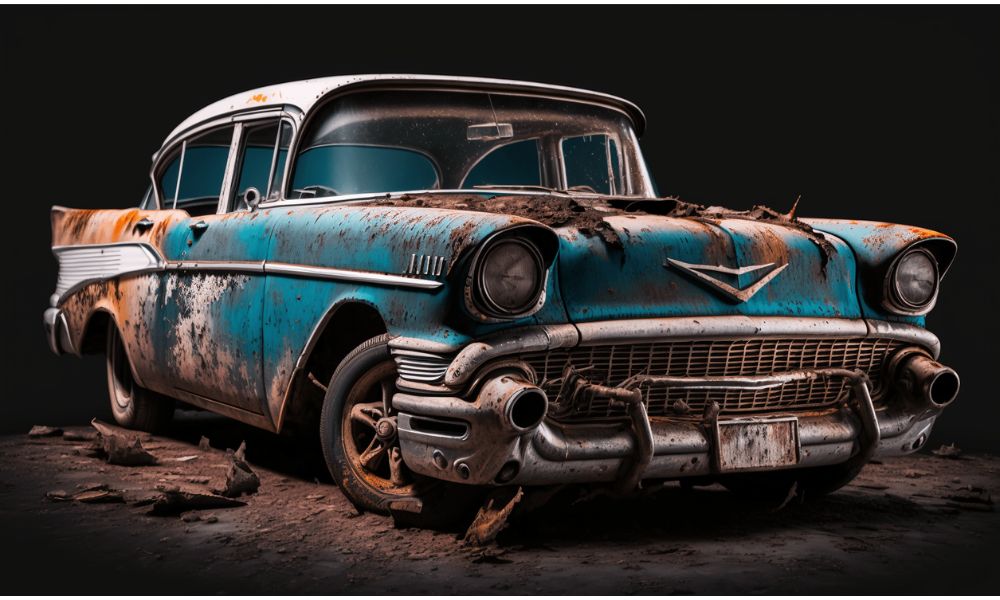
Is a Rebuilt Title Bad for Insurance?
TABLE OF CONTENTS
When buying a car, the title is an important aspect to consider. A title that has been branded as "rebuilt" may raise questions about the car's history, safety, and value. One common question that car owners and buyers have about a rebuilt title car is whether it is bad for insurance. While the short answer is yes, we will delve into this topic and explore the factors that can affect insurance rates for a car with a rebuilt title.
KEY TAKEAWAYS
- 1
Rebuilt title cars can be more challenging to insure, with some insurance companies charging higher premiums or refusing coverage due to perceived risks associated with previous severe damage and potential future claims.
- 2
Insurance rates for rebuilt title cars depend on factors such as the severity and type of damage, age and make of the vehicle, and its repair history.
- 3
To make an informed decision about purchasing a rebuilt title car, obtain a vehicle history report and consult with your insurance provider to understand the potential impact on insurance rates.
Rebuilt title meaning
Firstly, it is important to understand what a rebuilt title means. A rebuilt title is one of a few labels given to a car that has been deemed a total loss by an insurance company or another entity due to severe damage, such as a flood, fire, or accident. The car is then repaired and restored to a roadworthy condition, and a rebuilt title is issued by the state motor vehicle agency to show that it has been rebuilt and is now safe to drive.
Rebuilt title insurance effect
So, is a rebuilt title bad for insurance? Yes, a vehicle with a rebuilt title can be more challenging to insure than one with a clean title. Some insurance companies may refuse to offer coverage for a rebuilt vehicle, as there is a higher risk associated with insuring cars that were previously involved in severe accidents or had other significant damage. However, not all insurance providers have the same policies, and some may still offer coverage, albeit with limitations or higher premiums.
Factors affecting insurance prices
Owners of rebuilt title vehicles may face higher insurance premiums due to the perceived risk associated with insuring these cars. In some cases, insurance companies charge up to 20-50% more for rebuilt title vehicles compared to those with clean titles. The increased cost is primarily due to concerns about the vehicle's structural integrity, safety, and the possibility of future claims.
Severity of damage
For the companies that do offer insurance, the degree how expensive it will be depends on several factors. One of the main factors is the severity of the damage that the car sustained. If the damage was minor and the repairs were done properly, the car may be considered safe to drive and may not have a very negative impact on insurance rates. However, if the damage was extensive and the car required significant repairs, insurance rates may be higher as there is a higher risk of future problems and safety concerns.
Type of damage
Another factor that can affect insurance rates for a rebuilt title car is the type of damage it suffered. For example, if the car was damaged by a flood, there may be a higher risk of electrical and mechanical problems in the future, which can impact insurance rates. If the car was damaged in a major accident, there may be concerns about the structural integrity of the car and its safety on the road.
Age of vehicle
The age and make of the car can also play a role in insurance rates for a rebuilt title car. Older, rarer, or problem-prone cars may have higher insurance rates, as there is a higher risk of future repairs and maintenance. On the other hand, newer cars or cars that have a good safety rating may have lower insurance rates, even if they have a rebuilt title.
How to find out how many rebuilt title is for insurance
One way to determine how bad a rebuilt title car will be for insurance is to obtain a vehicle history report. This report can provide information about the car's history, including any accidents, repairs, and title changes. If the report shows that the car was rebuilt properly and has no major issues, it may not have a significant impact on insurance rates. However, if the report shows a history of major damage, insurance rates may be higher.
Conclusion
A rebuilt title car is not great for insurance, but there are several factors to consider. The severity of the damage, type of damage, age and make of the car, and repair history can all impact insurance rates. To determine if a rebuilt title car is a good option for you, it is important to do your research, obtain a vehicle history report, and consult with your insurance provider. By taking these steps, you can make an informed decision about whether a rebuilt title car is the right choice for you.
TABLE OF CONTENTS


Trying to find the best insurance?
We'll help you find the policy that offers the best value for your situation.
Further Reading

Navigating the Digital Insurance Landscape Considerations
A look at the immense value and high customer lifetime potential within the insurance sector.
Read article

When is Term Life Insurance Worth it?
Decide if term life's advantages are worth it: compare whole vs term life insurance, assess top term providers, and delve into in-depth reviews.
Read article

Insurance Binder: Bridging Between Coverage and Confirmation
From car loans to rental properties, insurance binders are required in a variety of situations. Discover the ins and outs of these essential documents.
Read article

Haven Life Review: Providing Prudent and Protective Policies
Uncover the benefits and drawbacks of Haven Life's term insurance policies, along with eligibility details, pricing, and customer feedback..
Read article
Start Comparing Quotes
Search from our learning center to learn everything from how to easily switch your car insurance to the ins and outs of home insurance.
Fill out just one form and get multiple quotes!


